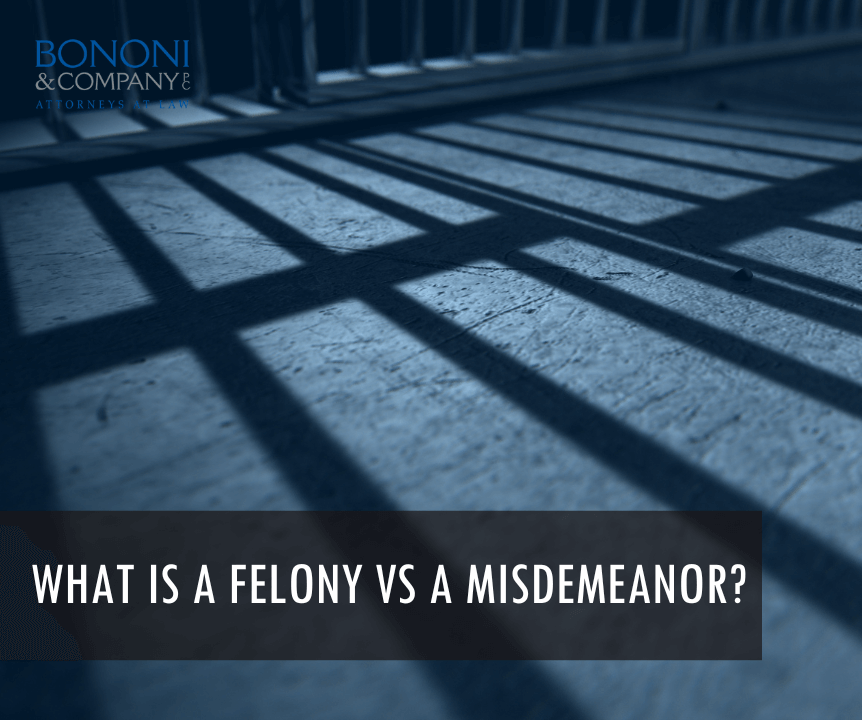
Crimes are classified into different categories based on their severity. Two common categories are felonies and misdemeanors, which differ in terms of the seriousness of the offense and the potential punishments involved.
Putting murder charges aside, in Pennsylvania, the most severe crime is a first degree felony, then 2nd degree felony, third degree felony, ungraded felony, first degree misdemeanor, second degree misdemeanor, third degree misdemeanor, ungraded misdemeanor, and summary offense.
Felonies are serious offenses. It typically involves acts that are egregious. Examples of felonies may include Rape, arson, and serious drug offenses. As far as punishment, the maximum sentence of a felony generally ranges from seven years to twenty years of incarceration.
On the other hand, a misdemeanor is a less serious criminal offense. This doesn’t mean it is not serious, it’s just not a felony. It generally refers to offenses that are considered less severe, such as minor theft, simple assault, or possession of marijuana. The maximum punishment for misdemeanors ranges from one year to five years incarceration.
The distinction between felonies and misdemeanors is important to determine the long-term consequences for individuals charged with or convicted of a crime.
If you have any questions about the topic discussed in this article, or any criminal law matter, please give us a call at Bononi & Company 724-832-2499. We have offices in Greensburg, Johnstown, Pittsburgh and Latrobe.
